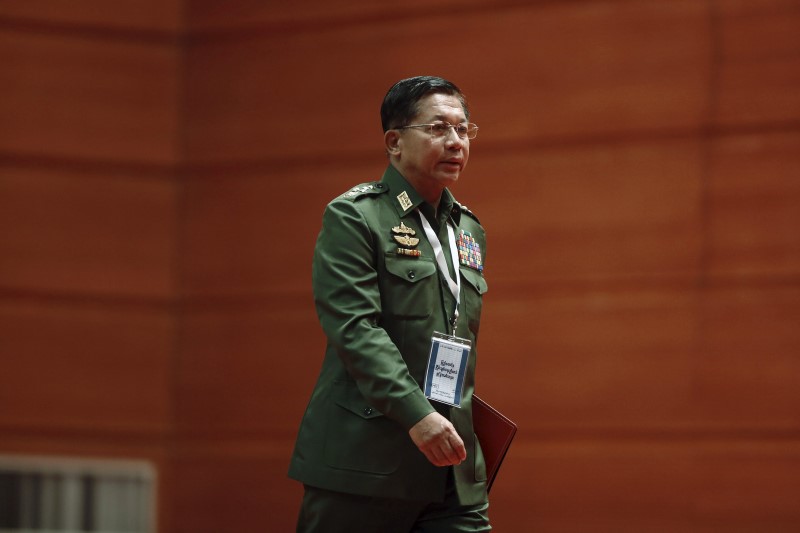By Aung Hla Tun
YANGON (Reuters) - Less than a week after a third transition meeting between Myanmar's commander-in-chief Min Aung Hlaing and democracy leader Aung San Suu Kyi, the powerful army chief has pushed back against any quick changes to the constitution.
The 2008 document, which bars Suu Kyi from becoming president even after her National League for Democracy (NLD) swept a historic election last year, has been a bone of contention between her party and the military. Suu Kyi has vowed to disregard it and lead the country from "above the president".
Min Aung Hlaing said that the junta-drafted constitution should be amended "at an appropriate time" in accordance with constitutional provisions. Some senior NLD members and pundits had speculated that the articles banning Suu Kyi from becoming president could be temporarily suspended as part of a power-sharing deal between the armed forces and the NLD.
"Since Myanmar has been undergoing democratization only for five years, necessary provisions should be amended at an appropriate time in accordance with the chapter XII of the constitution," the military-run Myawady daily reported Min Aung Hlaing as saying at a meeting with military officers on Monday.
Talks between the two sides over a protracted political transition drag on amid reports that the military chief has secured a five-year extension.
The military stepped back from direct rule of Myanmar in 2011 after nearly five decades in power. Under the semi-civilian government that took its place, the military still holds considerable political power and Suu Kyi will need to forge a relationship with the armed forces to govern effectively.
A quarter of the seats in the country's national parliament are held by unelected military MPs. The same is true for the smaller state and regional parliaments.
The military also remains in control of three key ministries - defence, border affairs and home affairs.
Political analyst Yan Myo Thein said the military chief's remarks were his public answer to speculation over potential quick changes to the constitution.
"That's a clear message indicating the stance of the military concerning the constitutional amendment issues," he said.
"So we can understand that suspension or amending of any constitutional provisions can't be expected at the moment."

Myanmar's transition is particularly lengthy. The NLD-dominated parliament sat for the first time on Feb. 1, but the nominations for president will not be announced until March 17. The new government's term is due to start on April 1.